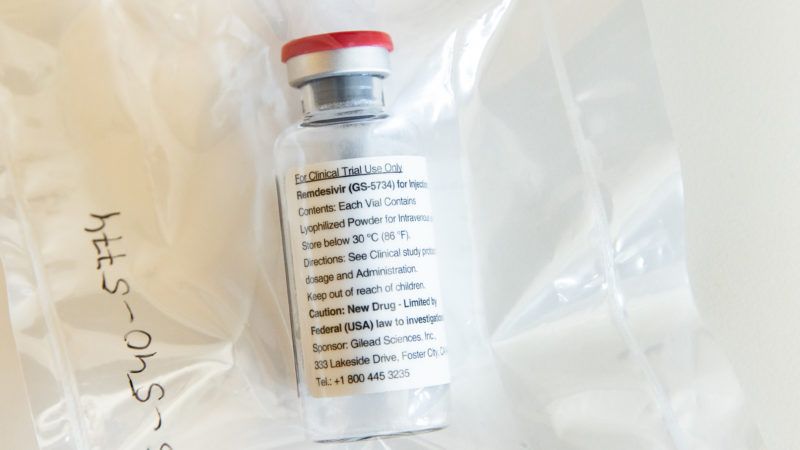FDA To Announce Emergency Use Authorization for Antiviral Remdesivir as COVID-19 Treatment
Promising randomized controlled trial results indicate the drug shortens time to recovery

The antiviral drug remdesivir will be given an emergency use authorization as a treatment for COVID-19 by the Food and Drug Administration (FDA) shortly, reports The New York Times. Gilead Science, the maker of the compound, noted in a press release earlier today that it was "aware of positive data emerging from the National Institute of Allergy and Infectious Diseases' (NIAID) study of the investigational antiviral remdesivir for the treatment of COVID-19. We understand that the trial has met its primary endpoint and that NIAID will provide detailed information at an upcoming briefing."
Apparently, that briefing may occur at the White House later today with President Trump and Dr. Anthony S. Fauci, the head of the NIAID.
The Times reports that Fauci said that the federal trial indicated that the drug remdesivir could shorten the time to recovery by about a third.
"Although a 31 percent improvement doesn't seem like a knockout 100 percent, it is a very important proof of concept because what it has proven is that a drug can block this virus," Dr. Fauci said. "This is very optimistic."
Mr. Trump called that a good sign. "Certainly it's a positive, it's a very positive event," he said.
In addition, Gilead Sciences reported that an open-label observational trial found that five days of treatment with the intravenous drug for COVID-19 was essentially as effective as 10 days.
Scott Gottlieb, the former commissioner of the FDA, told the biomedical news site STAT that "remdesivir isn't a home run but looks active and can be part of a toolbox of drugs and diagnostics that substantially lower our risk heading into the fall."
An earlier Chinese study reported that remdesivir was no more effective than placebo in treating severe cases of COVID-19. However, that study did note that patients treated earlier in the course of the disease did seem to fare somewhat better.
Using the drug to treat patients earlier in the course of their disease may result in better outcomes. "We know that with most antiviral medications the earlier you give it the better it is," said Boston Medical Center researcher Nahid Bhadelia to STAT. She suggested that means that treatment with the drug will likely be most effective in patients who have been infected more recently. "What will be important is that we find people on the outpatient side," Bhadelia said. "Again, testing becomes important, we want to have them come to the hospital as soon as possible."
A hopeful result, if still not an anti-COVID-19 silver bullet.


Show Comments (29)